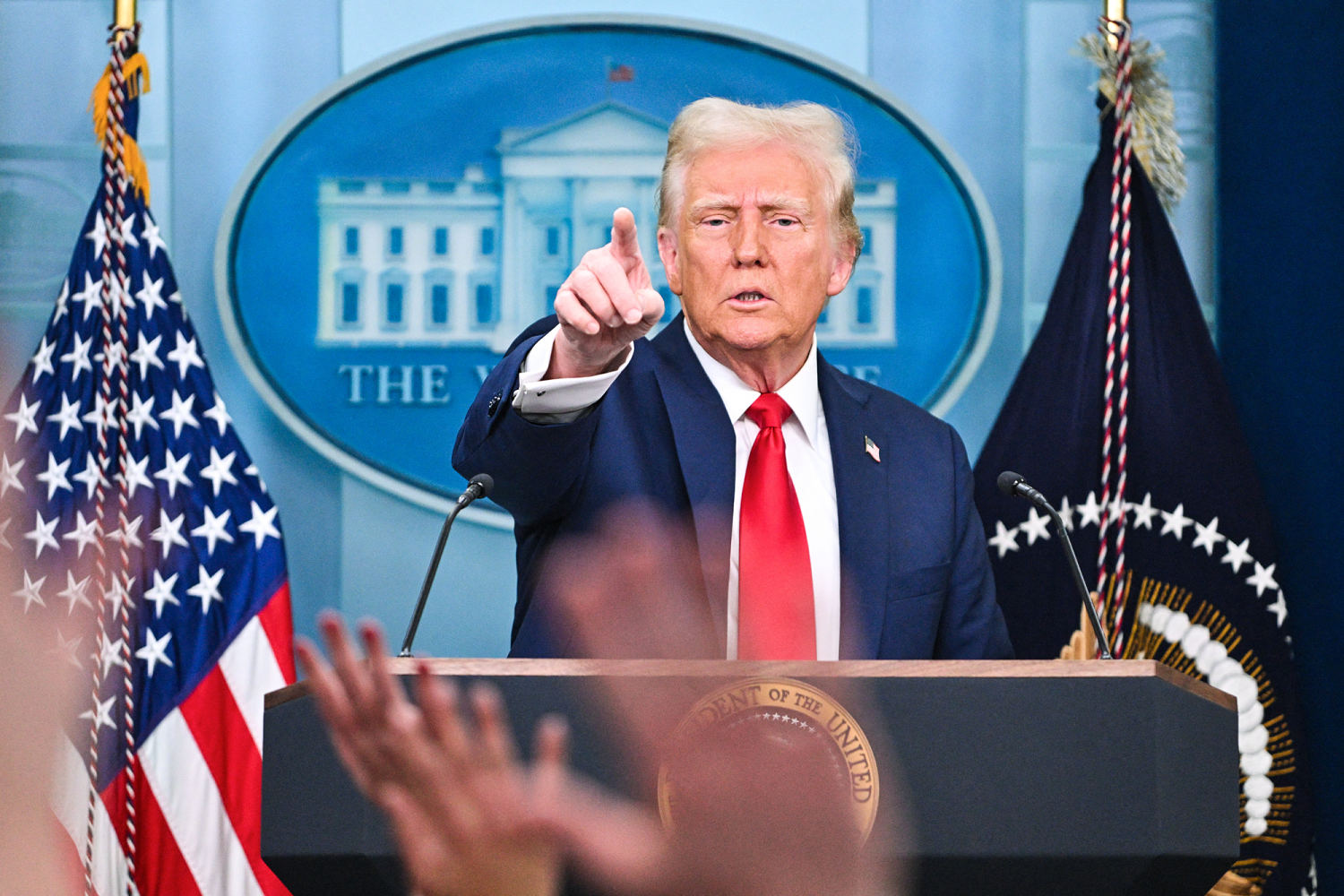How American tech companies built China into an AI powerhouse

The United States advantage in artificial intelligence is in question following the recent news that DeepSeek — a small Chinese startup — developed a better, more efficient large language AI model for billions less and in a fraction of the time it took leading American tech companies like Meta and Microsoft to do so themselves.
It’s a stunning development — one that has called into question the assumptions of American AI leaders. But the real issue isn’t just that American companies are falling behind from a technical standpoint, it's that China’s AI ascension was in part enabled by American tech companies building, operating and growing their AI capabilities in the country.
Inadvertent or not, American companies have provided China with everything it needs to gain a competitive advantage.
One American company, for example, Microsoft, has made China its second home for AI development — operating AI research facilities directly in China that helped to make Chinese AI what it is today.
Indeed, Microsoft spent years helping to create China’s AI industry, by, for example, developing AI technologies at its Beijing research lab and in conjunction with Chinese military universities. A little over a year ago, the company gave the China access to almost 40 new Azure features — including many AI functions, and it recently signed agreements with Chinese propaganda outlets to provide them with AI technology to better target propaganda dissemination.
Perhaps more importantly, most tech companies operating in China have to comply with China’s National Cybersecurity Law, which requires them to store Chinese user data on mainland servers, providing an access route for Chinese intelligence and state security agencies. This includes giving the government access to source code, encryption keys and backdoor access.
How China processes that data and leverages it is heavily veiled by the Chinese government, but it’s well-known that China uses it for the benefit of its private sector and directly against its adversaries. Microsoft admitted that China’s cybersecurity laws on vulnerability disclosures have led to an increase in China-based nation-state threat actors exploiting zero-day vulnerabilities. Surely China has every reason to leverage these laws to exploit Microsoft’s AI products as well.
Microsoft isn’t the only company that operates in China. Indeed, Oracle, Amazon Web Services and Meta all have similarly spent years building and operating AI partnerships in China. But Microsoft has a uniquely massive presence in China and is one of the largest providers of technology to the U.S. government, which makes its activities in China potentially harmful to the U.S. private sector and perilous to U.S. national security.
Americans have every right to question China’s rapid AI ascension because it could have easily been different. Ironically, Microsoft itself showed that there is a path to building the U.S. AI industry without simultaneously building China’s through its deal with Emirati firm G42.
The deal, which the U.S. government approved last year, authorized the export of advanced AI chips to a Microsoft-operated facility in the United Arab Emirates as part of a partnership between Microsoft and G42. It expanded the reach and use of American AI technology through close coordination between the U.S. government and the private sector and reaffirmed a strong partnership with a close ally, all while leveraging clear and transparent export controls that mitigated China’s ability to access Microsoft’s AI.
But what is past is past. The damage, such as it is, has been done and Chinese AI advances are now a matter of fact. But there’s no excuse for the government to allow the situation to continue and for U.S. tech companies to be researching advanced AI in China.
To help the U.S. take back its position as the unquestioned AI leader, the government should take action to review the actions of American companies that have sensitive AI operations in China and work to diminish the partnerships that are helping China directly compete with the U.S.
Paul Rosenzweig is the founder of Red Branch Consulting PLLC, a homeland security and cybersecurity consulting company, and a senior advisor to The Chertoff Group. Rosenzweig formerly served as deputy assistant secretary for Policy in the Department of Homeland Security.
-
Why Chinese AI company DeepSeek's new tech is rattling investors
Tech stocks on Wall Street took a tumble on Monday after Chinese artificial intelligence startup DeepSeek released a free AI chatbot and their app climbed to the top of app stores. CBS News ...CBS News - 4d -

The Papers: Auschwitz anniversary and China AI 'tumbles' US tech
Holocaust survivors' recollections and DeepSeek's effect on US tech feature in Tuesday's papers.BBC News - 4d -

Trump says China's DeepSeek AI 'should be a wake-up call' for American tech companies
President Donald Trump said Monday that the sudden rise of Chinese AI app DeepSeek “should be a wake-up call” for America’s tech companies.NBC News - 4d -
Why Chinese AI company DeepSeek is spooking investors on U.S. tech
U.S. tech stocks, including Nvidia, Oracle and Broadcom, plummeted Monday after Chinese startup DeepSeek said it created an AI system that can compete against chatbots such as OpenAI's ChatGPT at ...Los Angeles Times - 5d -

Tech stocks slump as China’s DeepSeek stokes fears over AI spending
Nvidia loses almost $600bn in market value on worries US groups are facing a ‘Sputnik moment’Financial Times - 5d -

Tech stocks drop amid rise of China's DeepSeek AI model
Shares in major technology companies leading the artificial intelligence (AI) race took a tumble Monday morning amid investor concern about a new Chinese AI model with growing popularity. Nvidia, ...The Hill - 5d -

Microsoft just built an AI that designs materials for the future: Here’s how it works
Microsoft researchers unveil MatterGen, which accelerates scientific discovery 15X and doubles success rates for stable compounds.VentureBeat - Jan. 16
More from The Hill
-

Wall Street Journal slams Trump's tariff plans: 'The dumbest trade war in history'
The Wall Street Journal’s editorial board published a punchy Saturday op-ed listing all the failed reasons for President Trump’s tariff plan, citing a declining trend in trade and manufacturing ...The Hill - 35m -

Wall Street Journal slams Trump's tariff plans: 'The dumbest trade war in history'
The Wall Street Journal’s editorial board published a punchy Saturday op-ed listing all the failed reasons for President Trump’s tariff plan, citing a declining trend in trade and manufacturing ...The Hill - 35m -

Watch live: NTSB gives update on DCA crash investigation
The National Transportation Safety Board (NTSB) is set to provide an update Saturday on the investigation into the recent aircraft collision outside of Reagan Washington National Airport. More than ...The Hill - 1h -

Michael Steele hits Trump for attempts to distance from FBI firings: 'Cut the crap'
Former Republican National Committee Chair Michael Steele said President Trump should “cut the crap” when it comes to accusations about his involvement in the firing of FBI officials and ...The Hill - 1h -

Trump signs tariffs on Canada, Mexico and China
PALM BEACH, Fla. — President Trump on Saturday imposed significant tariffs on Canada, Mexico and China, a White House spokesperson said, following through on a long-standing pledge and potentially ...The Hill - 1h
More in Politics
-

Trump sparks outcry with implication that DEI policies are at fault in D.C. midair collision
In his first news conference since the aircraft collision over the Potomac River, President Donald Trump on Thursday implied that diversity, equity and inclusion programs could be the cause, ...NBC News - 24m -

Trump sparks outcry with implication that DEI policies are at fault in D.C. midair collision
In his first news conference since the aircraft collision over the Potomac River, President Donald Trump on Thursday implied that diversity, equity and inclusion programs could be the cause, ...NBC News - 24m -

Wall Street Journal slams Trump's tariff plans: 'The dumbest trade war in history'
The Wall Street Journal’s editorial board published a punchy Saturday op-ed listing all the failed reasons for President Trump’s tariff plan, citing a declining trend in trade and manufacturing ...The Hill - 35m -

Wall Street Journal slams Trump's tariff plans: 'The dumbest trade war in history'
The Wall Street Journal’s editorial board published a punchy Saturday op-ed listing all the failed reasons for President Trump’s tariff plan, citing a declining trend in trade and manufacturing ...The Hill - 35m -

Watch live: NTSB gives update on DCA crash investigation
The National Transportation Safety Board (NTSB) is set to provide an update Saturday on the investigation into the recent aircraft collision outside of Reagan Washington National Airport. More than ...The Hill - 1h